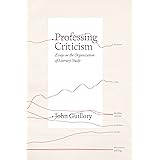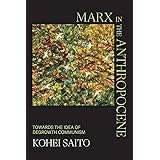
Enjoy fast, free delivery, exclusive deals, and award-winning movies & TV shows with Prime
Try Prime
and start saving today with fast, free delivery
Amazon Prime includes:
Fast, FREE Delivery is available to Prime members. To join, select "Try Amazon Prime and start saving today with Fast, FREE Delivery" below the Add to Cart button.
Amazon Prime members enjoy:- Cardmembers earn 5% Back at Amazon.com with a Prime Credit Card.
- Unlimited Free Two-Day Delivery
- Streaming of thousands of movies and TV shows with limited ads on Prime Video.
- A Kindle book to borrow for free each month - with no due dates
- Listen to over 2 million songs and hundreds of playlists
- Unlimited photo storage with anywhere access
Important: Your credit card will NOT be charged when you start your free trial or if you cancel during the trial period. If you're happy with Amazon Prime, do nothing. At the end of the free trial, your membership will automatically upgrade to a monthly membership.

Download the free Kindle app and start reading Kindle books instantly on your smartphone, tablet, or computer - no Kindle device required.
Read instantly on your browser with Kindle for Web.
Using your mobile phone camera - scan the code below and download the Kindle app.

OK
The Philology of Life: Walter Benjamin's Critical Program (Idiom: Inventing Writing Theory) 1st Edition
Purchase options and add-ons
The Philology of Life retraces the outlines of the philological project developed by Walter Benjamin in his early essays on Hölderlin, the Romantics, and Goethe. This philological program, McLaughlin shows, provides the methodological key to Benjamin’s work as a whole.
According to Benjamin, German literary history in the period roughly following the first World War was part of a wider “crisis of historical experience”―a life crisis to which Lebensphilosophie (philosophy of life) had instructively but insufficiently responded. Benjamin’s literary critical struggle during these years consisted in developing a philology of literary historical experience and of life that is rooted in an encounter with a written image.
The fundamental importance of this “philological” method in Benjamin’s work seems not to have been recognized by his contemporary readers, including Theodor Adorno who considered the approach to be lacking in dialectical rigor. This facet of Benjamin’s work was also elided in the postwar publications of his writings, both in German and English. In recent decades, the publication of a wider range of Benjamin’s writings has made it possible to retrace the outlines of a distinctive philological project that starts to develop in his early literary criticism and that extends into the late studies of Baudelaire and Paris. By bringing this innovative method to light this study proposes “the philology of life” as the key to the critical program of one of the most influential intellectual figures in the humanities.
- ISBN-101531501699
- ISBN-13978-1531501693
- Edition1st
- PublisherFordham University Press
- Publication dateJanuary 17, 2023
- LanguageEnglish
- Dimensions5.25 x 0.5 x 8.25 inches
- Print length208 pages
Customers who bought this item also bought
Editorial Reviews
Review
This is a rare book that addresses Benjamin as reader of literature, as a failed academic Literaturwissenschaftler but a highly successful, even prophetic reader. The manuscript is marked by a lapidary quality that speaks to the expertise and depth of the author’s approach.---Leif Weatherby, New York University
From the Back Cover
“McLaughlin’s book is a model of literary studies in which the idea of life becomes a primary focal point. This life is neither the typical material of literary biography nor the ‘mere life’ that comes under discussion in assessments and critiques of biopolitics. By presenting the question of life as fundamentally a matter of reading, McLaughlin’s biophilology makes an invaluable contribution to our understanding of Benjamin’s early work as well as the theory of literature in general.”―Peter Fenves, Northwestern University
“This is a rare book that addresses Benjamin as reader of literature, as a failed academic Literaturwissenschaftler but a highly successful, even prophetic reader. The manuscript is marked by a lapidary quality that speaks to the expertise and depth of the author’s approach.”―Leif Weatherby, New York University
The Philology of Life retraces the outlines of the philological project developed by Walter Benjamin in his early essays on Hölderlin, the Romantics, and Goethe. This philological program. McLaughlin shows, provides the methodological key to Benjamin’s work as a whole.
According to Benjamin, German literary history in the period roughly following the first World War was part of a wider “crisis of historical experience”―a life crisis to which Lebensphilosophie (philosophy of life) had instructively but insufficiently responded. Benjamin’s literary critical struggle during these years consisted in developing a philology of literary historical experience and of life that is rooted in an encounter with a written image. By bringing this innovative method to light this study proposes “the philology of life” as the key to the critical program of one of the most influential intellectual figures in the humanities.
Kevin McLaughlin is Dean of Faculty at Brown University, where he serves as George Hazard Crooker University Professor of English, Comparative Literature, and German Studies. He is the author of three books and co-translator of Walter Benjamin's Arcades Project.
About the Author
Product details
- Publisher : Fordham University Press; 1st edition (January 17, 2023)
- Language : English
- Paperback : 208 pages
- ISBN-10 : 1531501699
- ISBN-13 : 978-1531501693
- Item Weight : 9.8 ounces
- Dimensions : 5.25 x 0.5 x 8.25 inches
- Best Sellers Rank: #2,490,674 in Books (See Top 100 in Books)
- #417 in Literary Theory
- #1,364 in Philosophy Criticism (Books)
- #6,489 in Philosophy (Books)
About the author

Discover more of the author’s books, see similar authors, read author blogs and more
Customer reviews
| 5 star | 0% | |
| 4 star | 0% | |
| 3 star | 0% | |
| 2 star | 0% | |
| 1 star | 0% |
Customer Reviews, including Product Star Ratings help customers to learn more about the product and decide whether it is the right product for them.
To calculate the overall star rating and percentage breakdown by star, we don’t use a simple average. Instead, our system considers things like how recent a review is and if the reviewer bought the item on Amazon. It also analyzed reviews to verify trustworthiness.
Learn more how customers reviews work on Amazon








